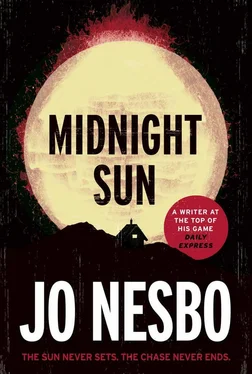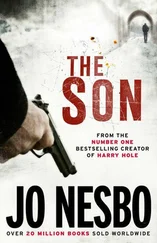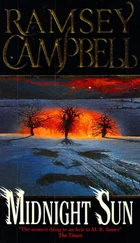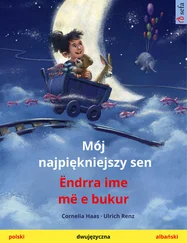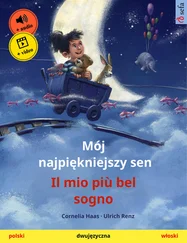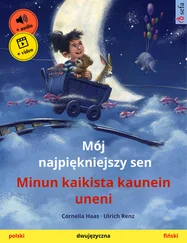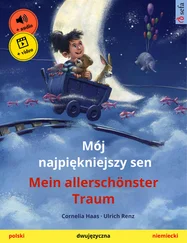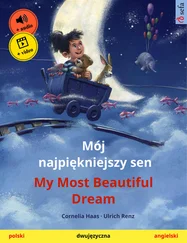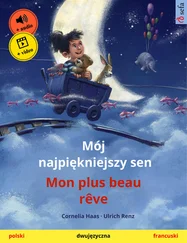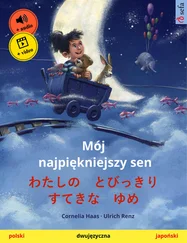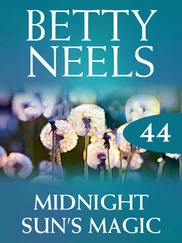I stood up and followed her. She had a quick stride and a way of moving that reminded me of a swan. The gravel road that went past the church led down into the cluster of houses that made up Kåsund. The stillness was almost unsettling. As yet I hadn’t seen anyone else apart from these two and the Sámi last night.
‘Why don’t most of the houses have curtains?’ I asked.
‘Because Læstadius taught us to let the light of God in,’ she said.
‘Læstadius?’
‘Lars Levi Læstadius. You don’t know of his teachings?’
I shook my head. I guess I’d read about the Swedish priest from the last century, who’d had to clean up the licentious ways of the locals, but I couldn’t claim to know of his teachings, and I suppose I’d imagined that old-fashioned stuff like that had died out.
‘Aren’t you a Læstadian?’ the boy asked. ‘You’ll burn in hell, then.’
‘Knut!’
‘But that’s what Grandpa says! And he knows, because he’s a travelling preacher all over Finnmark and Nord-Troms, so there!’
‘Grandpa also says that you shouldn’t shout your faith from the street corner.’ She looked at me with a pained expression. ‘Knut sometimes gets a bit overzealous. Are you from Oslo?’
‘Born and raised.’
‘Family?’
I shook my head.
‘Sure?’
‘What?’
She smiled. ‘You hesitated. Divorced, perhaps?’
‘Then you’ll definitely burn!’ Knut cried, wiggling his fingers in a way I assumed was supposed to represent flames.
‘Not divorced,’ I said.
I noticed her giving me a sideways look. ‘A lonely hunter far from home, then. What do you do otherwise?’
‘Fixer,’ I said. A movement made me look up, and I caught a glimpse of a face behind a window before the curtain was closed again. ‘But I’ve just resigned. I’m going to try to find something new.’
‘Something new,’ she repeated. It sounded like a sigh.
‘And you’re a cleaner?’ I asked, mostly for the sake of saying something.
‘Mum’s the sexton too, and the verger,’ Knut said. ‘Grandpa says she could have taken over as vicar as well. If she was a man, I mean.’
‘I thought they’d passed legislation about female vicars?’
She laughed. ‘A female vicar in Kåsund?’
The boy waggled his fingers again.
‘Here we are.’ She turned off towards a small, curtainless house. In the drive, perched on breeze blocks, was a Volvo with no wheels, and next to it stood a wheelbarrow containing two rusty wheel rims.
‘That’s Dad’s car,’ Knut said. ‘That one’s Mum’s.’ He pointed to a Volkswagen Beetle parked in the shade inside the garage.
We went in the unlocked house, and she showed me into the living room and said she’d fetch the shotgun, leaving me standing there with Knut. The room was sparsely furnished, neat, clean and tidy. Sturdy furniture, but no television or stereo. No pot plants. And the only pictures on the wall were Jesus carrying a sheep, and a wedding photograph.
I went closer. It was her, no doubt about that. She looked sweet, almost beautiful in her bridal gown. The man next to her was tall and broad-shouldered. For some reason, his smiling yet impassive face made me think of the face I had just caught a glimpse of in the window.
‘Come here, Ulf!’
I followed the voice, through a passageway and in through the open door of what looked as like a workroom. His workroom. A carpenter’s bench with rusty car parts, broken children’s toys that looked as though they’d been there for a while, plus several other half-finished projects.
She had pulled out a box of cartridges and pointed at a shotgun that was hanging next to a rifle balanced on two nails on the wall, too high for her to reach. I suspected she had asked me to wait in the living room so she could clear some things away in there first. I looked round for bottles, and I couldn’t miss the smell of home brew, alcohol and cigarettes.
‘Have you got bullets for that rifle?’ I asked.
‘Of course,’ she said. ‘But weren’t you going to be hunting grouse?’
‘It’s more of a challenge with a rifle,’ I said, as I reached up and took it down. I aimed it out of the window. The curtains in the next house twitched. ‘And then you don’t have the job of getting all the shot out. How do you load it?’
She looked at me intently, evidently not sure if I was joking, before she showed me. Given my job, you’d think I’d know a lot about guns, but all I know is a bit about pistols. She inserted a magazine, demonstrated the loading action, and explained that the rifle was semi-automatic, but that the hunting laws said it was illegal to have more than three bullets in the magazine and one in the chamber.
‘Of course,’ I said, practising the loading action. What I like about guns is the sound of greased metal, of precision engineering. But that’s all.
‘You’ll find these useful as well,’ she said.
I turned round. She was holding a pair of binoculars out to me. They were Soviet B8 military binoculars. My grandfather had managed to get hold of a pair somehow, which he used to study the details of church architecture. He had told me that before and during the war, all the good optical engineering came from Germany, and the first thing the Russians did when they occupied the east of the country was steal the Germans’ industrial secrets and make cheaper, but damn good copies. God knows how they’d got hold of a pair of B8 binoculars here. I put the rifle down and looked through them. At the house with the face. No one there now.
‘Obviously I’ll pay to hire them.’
‘Nonsense.’ She replaced the box of bullets in front of me with one of rifle cartridges. ‘But Hugo would probably like it if you could cover the cost of the ammunition you use.’
‘Where is he?’
It was clearly an inappropriate question, because I saw her face twitch.
‘Fishing for pollock. Have you got any food and drink?’ she asked.
I shook my head. I hadn’t really thought about that. How many meals had I actually eaten since Oslo?
‘I’ll put together some food for you, and you can get the rest from Pirjo’s shop. Knut will show you.’
We went back out onto the steps. She looked at the time. Presumably making sure I hadn’t been inside long enough to give the neighbours anything to talk about. Knut was racing about the garden, eager as a puppy to get going.
‘It’ll take between thirty minutes and an hour to get to the cabin,’ she said. ‘Depending on how quick you are on your feet.’
‘Hmm. I’m not sure when my own shotgun’s going to arrive.’
‘There’s no rush. Hugo doesn’t hunt much.’
I nodded, then adjusted the strap on the rifle and slung it over my shoulder. My good shoulder. Time to get going. I tried to think of something to say in farewell. She tilted her head slightly, just like her son, and brushed some strands of hair from her face.
‘You don’t think it’s that beautiful, do you?’
I must have looked a bit confused, because she let out a short laugh and her high cheekbones flushed. ‘Kåsund, I mean. Our houses. It used to be nice here. Before the war. But when the Russians came in 1945 and the Germans fled, they burned down everything that was left as they retreated. Everything except the church.’
‘The scorched-earth tactics.’
‘People needed houses. So they built quickly. With no thought to what they looked like.’
‘Oh, they’re not that bad,’ I lied.
‘Yes, they are,’ she laughed. ‘The houses are ugly. But not the people who live in them.’
I looked at her scar. ‘I believe you. Right, time to get going. Thank you.’ I held out my hand. This time she took it. Her hand was firm and warm, like a smooth, sun-warmed stone.
Читать дальше
